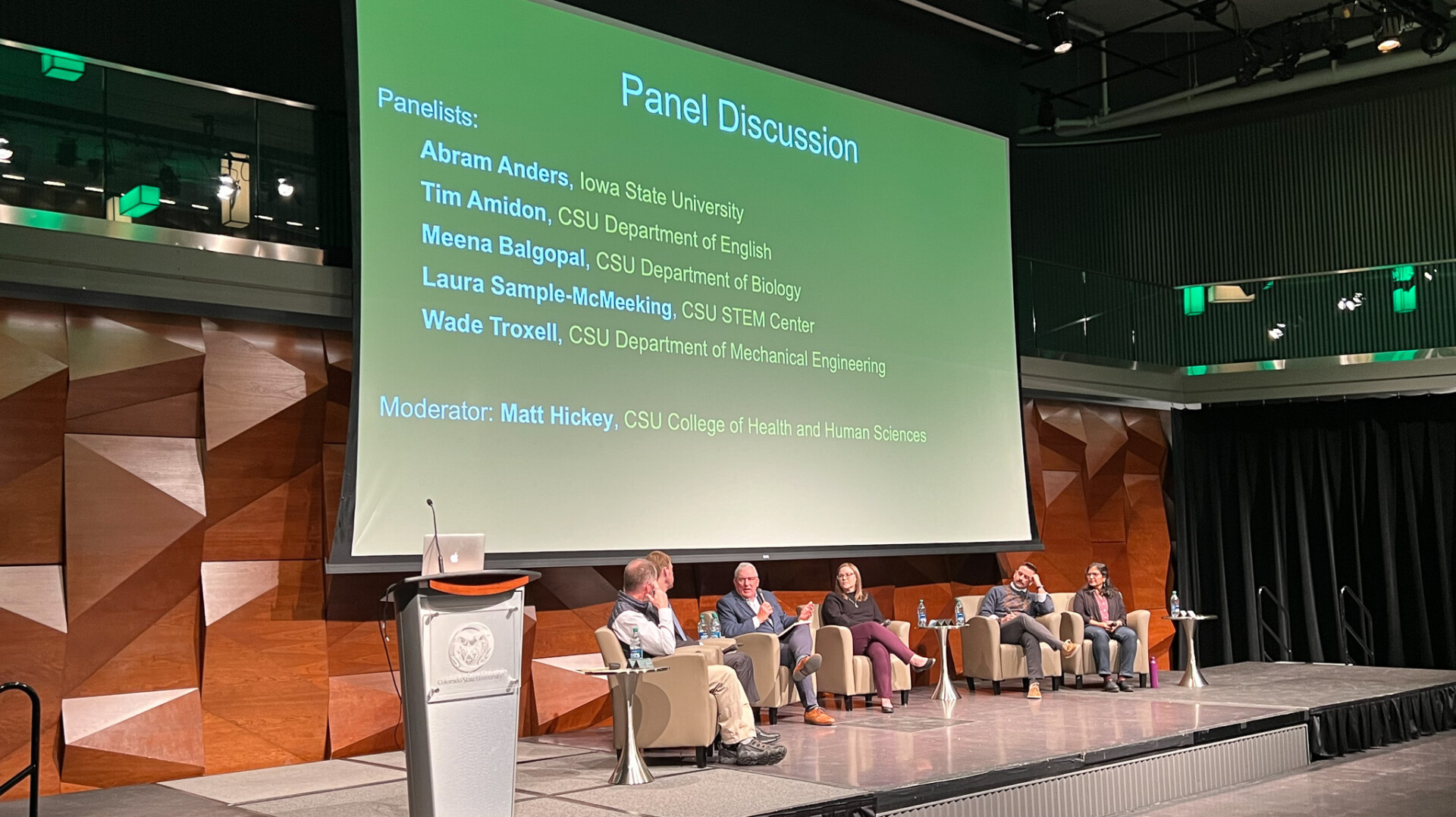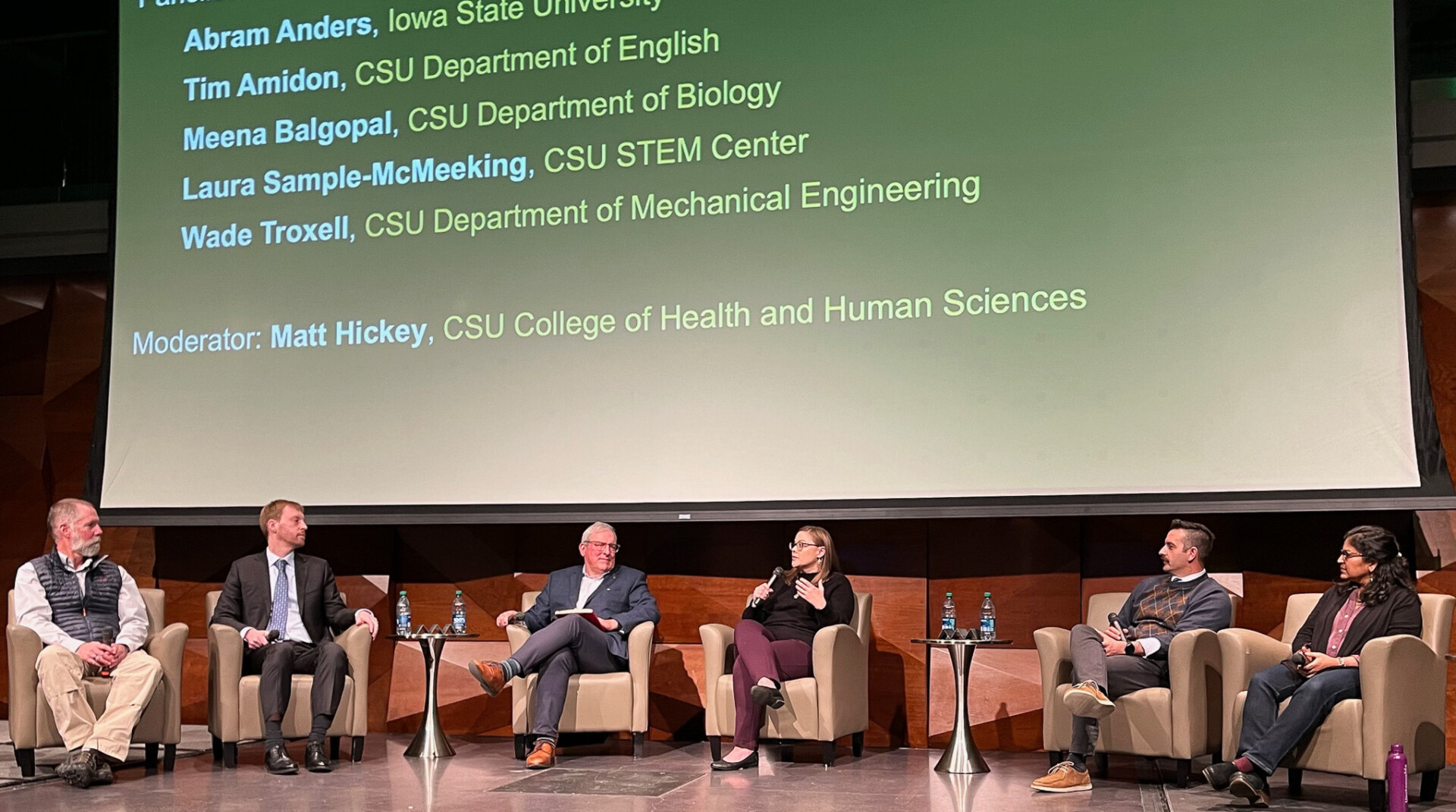The popularity of artificial intelligence, like many technological revolutions before it, is growing hand in hand with a myriad of uncertainties. During the annual Provost’s Ethics Colloquium last month, keynote speaker Abram Anders discussed generative AI’s prospects, limitations and ethical considerations within higher education.
Anders, associate professor of English and interim associate director of the Student Innovation Center at Iowa State University, firmly positioned generative AI as non-sentient tools to transform higher education by enhancing self-understanding and extending our capacities “in ways that make our disciplinary expertise more valuable, not less, because these tools can’t do anything on their own.”
A moderated panel discussion followed Anders’ keynote, exploring both the potential applications and ethical concerns of the future of AI. Moderated by University Distinguished Teaching Scholar Matt Hickey, the panel was composed of Anders and the following CSU faculty members:
- Tim Amidon, Department of English and Writing, Rhetoric and Literacy Programs.
- Meena Balgopal, Department of Biology.
- Laura Sample McMeeking, CSU STEM Center.
- Wade Troxell, Department of Mechanical Engineering.

AI shouldn’t be ignored or banned
Anders’ presentation focused mainly on educators’ responses to the emergence of generative AI in academia and lessons learned from his Fall 2023 experimental English course, “Artificial Intelligence and Writing.”
Arguing that ethics are a question of what actions to take based on the conditions of existence those actions will create, Anders posited that ignoring generative AI would leave students without proper guidance, while banning it from education altogether would disproportionately affect the most vulnerable students by setting them up to be “caught” more often than others. Therefore, he encouraged educators to actively work to help students learn responsible and effective use of AI as tools.
Anders touched on the potential for generative AI to support adaptive learning, reduce retention gaps, assist educators with instructional design and administrative tasks, and act as an Exploratorium, teammate, tutor and practice simulator for students, among other applications.
Developing AI literacy in students and educators was a recurring theme of Anders’ presentation, centering on the idea that generative AI creates output based on what it is given. The highest tier of AI outputs are created through structured prompts utilizing disciplinary knowledge and are complemented with personal insights and independent checks, making human involvement crucial in the use of AI.

About the colloquium
The Provost’s Ethics Colloquium, which hosted its first event in 2016, aims to promote cross-disciplinary, cross-college ethics conversations by supporting, highlighting and enhancing CSU’s ethics-related seminars and activities.
This fall’s colloquium was the third relating to AI, following “The Ethics of Artificial Intelligence” in November 2022 and “The Academic Impact of ChatGPT” in February. All three colloquia discussed the ethics, opportunities and future of AI for “good reason,” said Interim Provost Jan Nerger.
“We’re kind of in the eye of a storm with AI, and it is a remarkable, and in some ways beautiful, storm,” Nerger said in her opening remarks. “As the phrase implies, the eye of the storm is mostly a calm space, but you know that there’s disruption sort of swirling around you, and you don’t know what the landscape will look like when the eye of the storm passes, but you know it will be forever changed. I think that’s sort of where we’re sitting.”